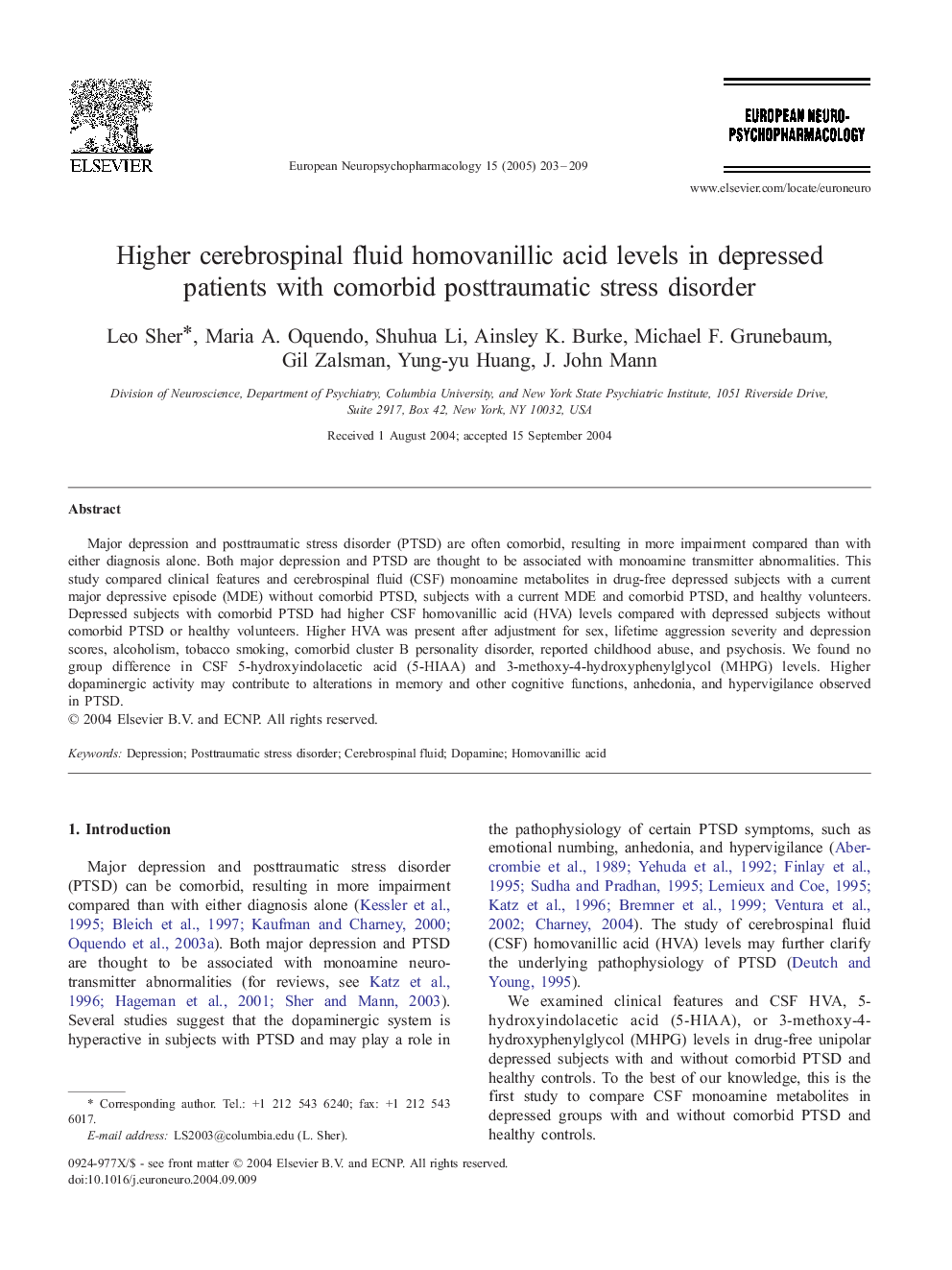| Article ID | Journal | Published Year | Pages | File Type |
|---|---|---|---|---|
| 10298856 | European Neuropsychopharmacology | 2005 | 7 Pages |
Abstract
Major depression and posttraumatic stress disorder (PTSD) are often comorbid, resulting in more impairment compared than with either diagnosis alone. Both major depression and PTSD are thought to be associated with monoamine transmitter abnormalities. This study compared clinical features and cerebrospinal fluid (CSF) monoamine metabolites in drug-free depressed subjects with a current major depressive episode (MDE) without comorbid PTSD, subjects with a current MDE and comorbid PTSD, and healthy volunteers. Depressed subjects with comorbid PTSD had higher CSF homovanillic acid (HVA) levels compared with depressed subjects without comorbid PTSD or healthy volunteers. Higher HVA was present after adjustment for sex, lifetime aggression severity and depression scores, alcoholism, tobacco smoking, comorbid cluster B personality disorder, reported childhood abuse, and psychosis. We found no group difference in CSF 5-hydroxyindolacetic acid (5-HIAA) and 3-methoxy-4-hydroxyphenylglycol (MHPG) levels. Higher dopaminergic activity may contribute to alterations in memory and other cognitive functions, anhedonia, and hypervigilance observed in PTSD.
Related Topics
Life Sciences
Neuroscience
Biological Psychiatry
Authors
Leo Sher, Maria A. Oquendo, Shuhua Li, Ainsley K. Burke, Michael F. Grunebaum, Gil Zalsman, Yung-yu Huang, J. John Mann,
